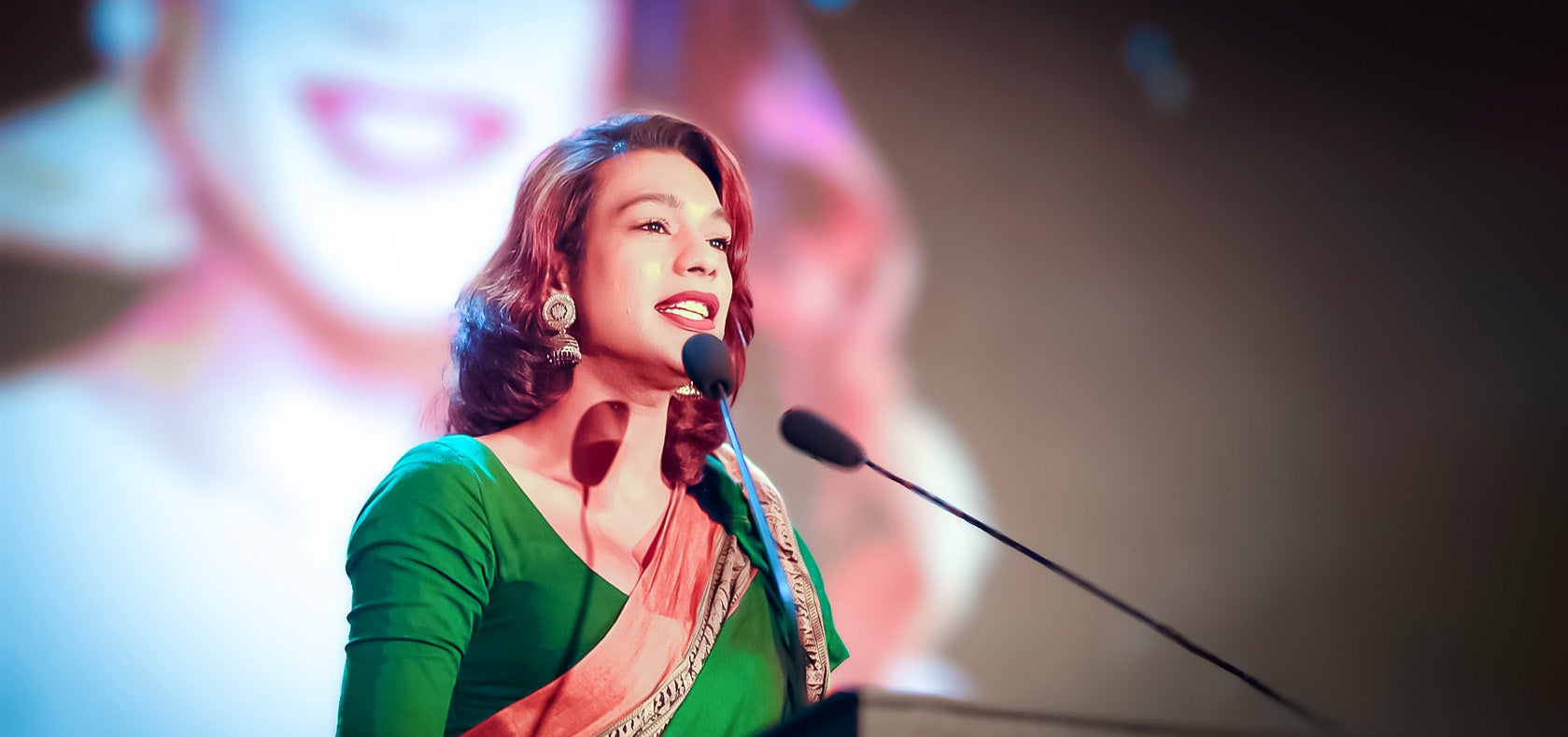In the words of Bhoomi Harendran: “We need to transform digital spaces, including laws on online violence”
Date:
Interviewed by Avindi Perera

Bhoomi Harendran is currently the Brand Ambassador for Emerge Lanka, an organization that works to empower girls who have survived abuse. Harendran is best known for her activism in human rights, and achieving equality and accessibility for the local transgender community in Sri Lanka. UN Women spoke to Harendran as part of a series titled Sri Lankan Women, Digital Spaces and Revolutions, where she spoke about using digital media for social change.

In my youth we didn’t have a proper platform to speak about trans rights in Sri Lanka. The only way to raise awareness was through an HIV prevention programme. However, this approach had its drawbacks because it reinforced the stereotype that transgender people were a key group with a higher risk of contracting HIV. But we had no other choice, so we seized the opportunity.
As time passed, digital media became more prevalent, opening a world full of possibilities. I was finally able to talk about trans rights to a larger audience, sparking positive attitudinal shifts and challenging social perceptions about transgender people. Social media allows marginalized communities to speak about issues that affect their lives and raise awareness on a larger scale. If used correctly, social media can be a space for positive change.
Despite its benefits, social media is also a vast and free space. Speaking out means facing insults, hate speech, and even threats. When I first started doing online interviews, I received a lot of criticism, with some people even criticizing the online media channels I was featured on. Even now, someone will always make a disrespectful comment. Online violence and bullying have become so normalized.
Through these experiences, I have learnt that some people will not change the way they think, no matter what you say. Instead, we should focus on reaching out to those who are willing to learn, and [help them to] unlearn their biases. Knowing your self-worth and importance can help shield you from demeaning comments. It’s also important to know when to ignore online trolls and when to fight back. With the rise of online death threats, it’s important to take precautions and seek help when necessary. My advice to others who are experiencing online violence is to be aware of your surroundings, learn more about the precautions you can take within those online spaces, and know when to report violence. If it’s affecting your mental wellbeing, move away from those spaces and speak to someone you trust.
We need to transform digital spaces in order to make them safe, including changing laws and policies to recognize online violence. At present, legal support is limited for survivors of emotional violence, and reporting mechanisms need strengthening to hold perpetrators accountable for hate crimes and online violence. In my opinion, this might be the best way to deter further violence and keep victims safe. I believe in being the change I want to see and I am continuing to work towards it until it happens. I am also a firm believer that if we want to see any kind of change, it must start with ourselves. If I speak about an issue that is important to me, I am doing so because I don’t want anyone else to go through the same challenges I did.”